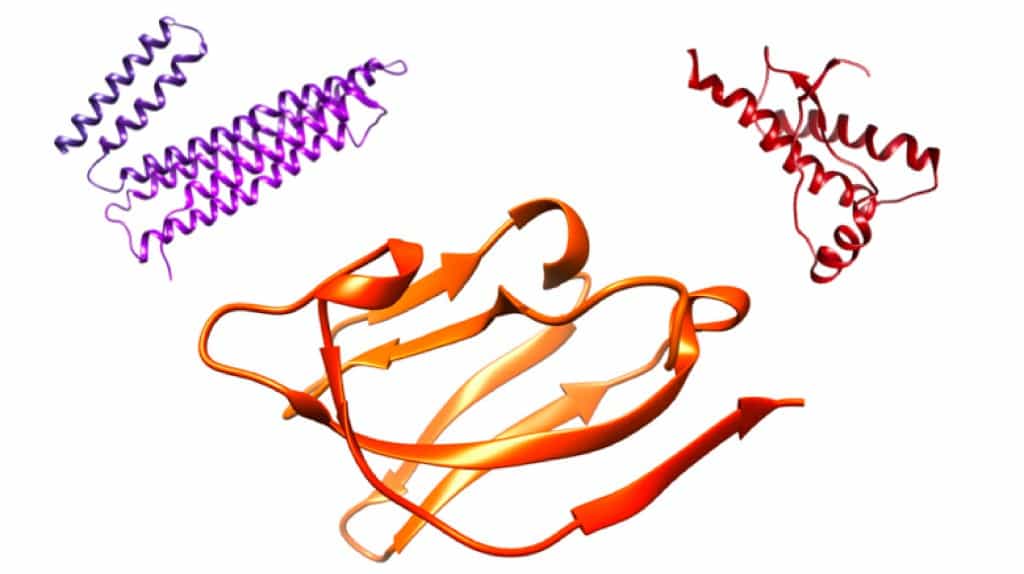Breakthrough work in biomarkers continues in the Department of Pathology and Laboratory Medicine at St. Paul’s
At a recent gathering in the Clinical Laboratory at St. Paul’s, Dr. Don Sin, head of the Division of Respiratory Medicine and Dr. Mari DeMarco, clinical chemist in Pathology and Laboratory Medicine, thanked Genome Canada, Genome BC and St. Paul’s Foundation for supporting the purchase of a new SCIEX mass spectrometer, which will support life-saving research at St Paul’s and the Centre for Heart Lung Innovation by performing diagnostic tests on biofluids such as blood.
Of particular interest to Dr. Sin’s work are the proteins (known as biomarkers) that circulate in blood, which are studied to help monitor changes in diseases, including Dr. Sin’s chief focus, chronic obstructive pulmonary disease (COPD).
The mass spectrometer was acquired as part of a larger grant in the amount of $7.2 million awarded to Dr. Sin to support his work in COPD. The application process for this funding was a rigorous, multi-year journey that included, in 2013, a stop in Toronto where Dr. Sin and members of his team presented their research vision to a “very tough” panel of external reviewers.
This panel of medical experts would ultimately recommend Dr. Sin for this major research grant—but at the time, nothing was certain.
“What truly impressed that panel more than anything else,” said Dr. Sin, “and what I feel helped set us apart, was our promise to integrate research with patient care. Ultimately, research is about impacting patient care, making patients’ lives better. With our research, we were committed to this ideal and the panel could sense that commitment.”
Dr. Sin’s sentiments of bringing research closer to patients echoed those of Dr. Mari DeMarco, a collaborator of Dr. Sin’s and an expert in clinical mass spectrometry. Dr. DeMarco spoke of this new piece of infrastructure representing a critical development in their team’s ability to translate research findings directly into patient care.
“The location of our new mass spectrometer can’t be underestimated,” said Dr. DeMarco. “It’s not housed in an academic setting but here in a hospital setting, in proximity to patients. It’s actually a very unique set-up, having a research instrument like this in a clinical lab.”
Dr. DeMarco illustrated how this closer connection to patients is achieved by noting that the new mass spectrometer mirrors an existing machine that is used only for running established tests. The new mass spectrometer will be used to design new tests, bridging the gap between research and patient care.
“What this means, is we can now develop tests on one spectrometer and bring them over to the other, which is currently running tests around the clock for patients in the hospital,” said Dr. DeMarco. “What’s exciting is that we can now teach the process of not just identifying biomarkers, but also how we can translate those biomarkers into something that will impact care.”
Biomarkers are “liquid biopsies”
Biomarkers are at the centre of Dr. Sin’s research into COPD and he makes their value clear with a simple anecdote.
“For a lung disease such as COPD,” said Dr. Sin, “the ideal would be to take a biopsy from the lungs of every patient who comes to St. Paul’s. Of course, this is not feasible. But blood is a window into what is happening in the lungs. By using leading edge technology like mass spectrometry, a single blood sample can become a “liquid biopsy,” providing incredibly useful information about what is happening with patients and allowing us to tailor the right treatment to the right patient at the right time.”
Dr. DeMarco describes working with biomarkers as “searching blood for signals,” and looking at how these signals can differ between a patient whose COPD is stable and a patient whose COPD may be worsening.
“We’ve been very fortunate these past few years,” said Dr. Sin. “We’ve worked hard and we’ve been successful in making new discoveries. But our ultimate goal is to bring those new discoveries to the patient. Our new mass spectrometer is a platform that enables us to do that.”
Keep moving research forward with your gift to St. Paul’s
Donations play a critical role in ongoing medical research. Will you help? To make a difference in the lives of COPD patients at St. Paul’s, please give now to support the Centre for Heart Lung Innovation at St. Paul’s.
